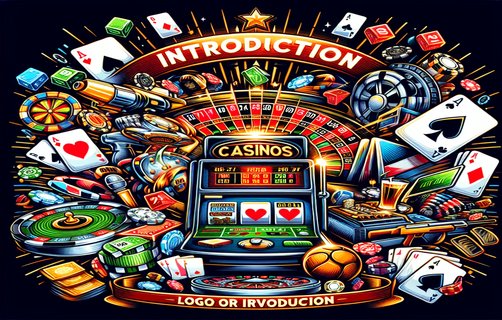Strategic Depth: Balancing Luck and Skill in Board Games
बोर्ड खेलों में भाग्य बनाम कौशल के बीच संतुलन

In the realm of board games, the eternal debate of luck versus skill engenders passionate discussions among players. The balance between these two elements can define not only the game experience but also the likelihood of victory. While some games heavily rely on pure chance, others demand significant strategic foresight, creating a rich tapestry of player engagement.
Rolling the dice remains the most iconic representation of chance in board gaming. The outcome of each roll can alter the course of play in unexpected ways, prompting players to adapt their strategies on the fly. This unpredictability introduces an exhilarating tension, fostering moments of joy when fortune favors the bold and frustrations when it does not. However, skilled players often mitigate the impact of luck by employing strategic decision-making, analyzing probabilities, and anticipating opponents’ moves.
Victory point trackers serve as valuable tools for players to visualize their standing and progress throughout the game. These trackers often encapsulate the essence of strategic endeavors and stimulate competitive spirit. As players accumulate points, they navigate their paths, weighing risks and rewards. In games where the pursuit of points is paramount, it’s essential to integrate skill with an understanding of the luck factor; a savvy player knows when to bank on fortune and when to calculate the odds meticulously.
Point allocation rules are instrumental in shaping the dynamics of gameplay. These rules dictate how players harness resources and navigate objectives, influencing both long-term strategy and immediate tactical decisions. An efficient allocation of points can distinguish between a win and a loss, motivating players to scheme and optimize their approaches. Some games allow for complex interactions with points, while others offer simpler structures that appeal to newcomers.
Action spaces are another crucial element that impacts player choices and overall game flow. The availability and limitations of action spaces can dictate whether players follow an aggressive or conservative strategy. Players must carefully consider their moves and how they interact with others. In games featuring shared action spaces, the interaction between players creates a dynamic environment where alliances and rivalries emerge. This fosters a unique kind of engagement, compelling players to strategize not just for themselves but in response to the collective landscape.
Settlers and event markers add another layer of complexity and excitement. These elements can introduce varying effects that drastically alter strategies mid-game. Settlers can signify areas of control, while event markers can catalyze unexpected twists in gameplay. This interactivity enhances the depth of strategy, compelling players to pivot and reassess continually.
In conclusion, the interplay between luck and skill, shaped by game mechanics and player dynamics, defines the board gaming experience. Each roll of the dice, point allocation decision, and interaction with action spaces contributes to a narrative of triumphs and setbacks. Understanding this intricate balance fosters a richer appreciation of the game and the strategies that emerge from it. Board games are, at their core, not just contests of chance but intricate displays of human creativity and intellect.

बोर्ड खेलों के क्षेत्र में, भाग्य बनाम कौशल का हमेशा का विवाद खिलाड़ियों के बीच उत्साही चर्चाएँ उत्पन्न करता है। इन दोनों तत्वों के बीच संतुलन न केवल खेल के अनुभव को परिभाषित कर सकता है बल्कि जीत की संभावना को भी प्रभावित कर सकता है। जबकि कुछ खेल पूरी तरह से मौके पर निर्भर होते हैं, अन्य महत्वपूर्ण रणनीतिक दृष्टिकोण की मांग करते हैं, जो खिलाड़ियों की भागीदारी का एक समृद्ध ताना-बाना बनाते हैं।
पासा फेंकना बोर्ड गेमिंग में अवसर का सबसे प्रतीकात्मक प्रतिनिधित्व बना हुआ है। प्रत्येक रोल का परिणाम खेल की दिशा को अप्रत्याशित तरीकों से बदल सकता है, खिलाड़ियों को अपनी रणनीतियों को तुरंत अनुकूलित करने के लिए प्रेरित करता है। यह अप्रत्याशितता एक उत्साहजनक तनाव को प्रस्तुत करती है, जब भाग्य साहसी के पक्ष में होता है तो आनंद के क्षण पैदा करते हैं और जब ऐसा नहीं होता है तो निराशा। हालांकि, कुशल खिलाड़ी अक्सर रणनीतिक निर्णय लेने के माध्यम से भाग्य के प्रभाव को कम करते हैं, संभावनाओं का विश्लेषण करते हैं और विरोधियों की चालों की भविष्यवाणी करते हैं।
विजेता अंक ट्रैकर खिलाड़ियों के लिए उनके खड़े रहने और खेल में प्रगति को दृश्य बनाने के लिए मूल्यवान उपकरण होते हैं। ये ट्रैकर अक्सर रणनीतिक प्रयासों के सार को संक्षेपित करते हैं और प्रतिस्पर्धी भावना को उत्तेजित करते हैं। जैसे-जैसे खिलाड़ी अंकों का संचय करते हैं, वे अपने मार्ग को नेविगेट करते हैं, जोखिमों और पुरस्कारों का मूल्यांकन करते हैं। उन खेलों में जहां अंक हासिल करने का पीछा सर्वोच्च है, कौशल को भाग्य के तत्व की समझ के साथ एकीकृत करना आवश्यक है; एक समझदार खिलाड़ी जानता है कि कब भाग्य पर भरोसा करना है और कब संभावनाओं की गणना करना है।
अंक आवंटन नियम खेल के अनुभव और गतिशीलता को प्रभावित करने में महत्वपूर्ण हैं। ये नियम निर्धारित करते हैं कि खिलाड़ी कैसे संसाधनों का उपयोग करते हैं और उद्देश्यों को नेविगेट करते हैं, दीर्घकालिक रणनीति और तात्कालिक सामरिक निर्णयों दोनों को प्रभावित करते हैं। अंकों का एक कुशल आवंटन जीत और हार के बीच भेद कर सकता है, खिलाड़ियों को योजनाबद्ध और अपने दृष्टिकोण का अनुकूलन करने के लिए प्रोत्साहित करता है। कुछ खेल अंक के साथ जटिल इंटरैक्शन की अनुमति देते हैं, जबकि अन्य ऐसे सरल संरचनाएँ प्रस्तुत करते हैं जो नए खिलाड़ियों को आकर्षित करती हैं।
एक्शन स्पेस भी एक महत्वपूर्ण तत्व है जो खिलाड़ी के विकल्पों और समग्र खेल की गति पर प्रभाव डालता है। एक्शन स्पेस की उपलब्धता और सीमाएँ यह निर्धारित कर सकती हैं कि खिलाड़ी आक्रामक या सावधानी के साथ रणनीति अपनाते हैं। खिलाड़ियों को अपने कदमों पर सावधानी से विचार करना चाहिए और यह कैसे एक-दूसरे के साथ इंटरैक्ट करते हैं। साझा एक्शन स्पेस वाले खेलों में, खिलाड़ियों के बीच इंटरएक्शन एक गतिशील वातावरण बनाता है जहां गठबंधन और प्रतिकूलताएँ उभरती हैं। यह एक अद्वितीय प्रकार की सहभागिता को बढ़ावा देता है, खिलाड़ियों को न केवल खुद के लिए बल्कि सामूहिक परिदृश्य की प्रतिक्रिया में रणनीति बनाने के लिए प्रेरित करता है।
सेटलर और इवेंट मार्कर्स एक और परत की जटिलता और उत्साह जोड़ते हैं। ये तत्व ऐसी प्रभाव डाल सकते हैं जो खेल रणनीतियों को मध्य-खेल में नाटकीय रूप से बदल देते हैं। सेटलर्स नियंत्रण के क्षेत्रों का संकेत दे सकते हैं, जबकि इवेंट मार्कर्स खेल के दौरान अप्रत्याशित मोड़ को उत्प्रेरित कर सकते हैं। यह अंतरक्रियाशीलता रणनीति की गहराई को बढ़ाती है, खिलाड़ियों को निरंतर रूप से बदलने और पुनः मूल्यांकन करने के लिए मजबूर करती है।
संक्षेप में, भाग्य और कौशल के बीच का यह आपसी संबंध, जो खेल के तंत्र और खिलाड़ी की गतिशीलता द्वारा आकारित होता है, बोर्ड खेल अनुभव को परिभाषित करता है। पासे का प्रत्येक रोल, अंक आवंटन का प्रत्येक निर्णय, और एक्शन स्पेस के साथ इंटरैक्शन एक जीत और विफलता की कथा में योगदान देता है। इस जटिल संतुलन को समझने से खेल और उसमें उभरने वाली रणनीतियों की समृद्ध सराहना होती है। बोर्ड खेल, मूल रूप से, केवल मौके की प्रतियोगिताएँ नहीं हैं बल्कि मानव रचनात्मकता और बुद्धिमत्ता के जटिल प्रदर्शन हैं।

comments
GameMaster88
This article brilliantly captures the essence of board gaming! Love the balance of luck and skill.
Strategist_21
I appreciate the insights on victory point trackers! They really shape the game.
DiceWhisperer
The section on action spaces was enlightening. It can make or break a game.
TacticianTom
An excellent read! Understanding point allocation adds a whole new layer to strategy.
CatanFan91
Great breakdown of settlers and event markers. They do change everything in a game!